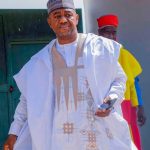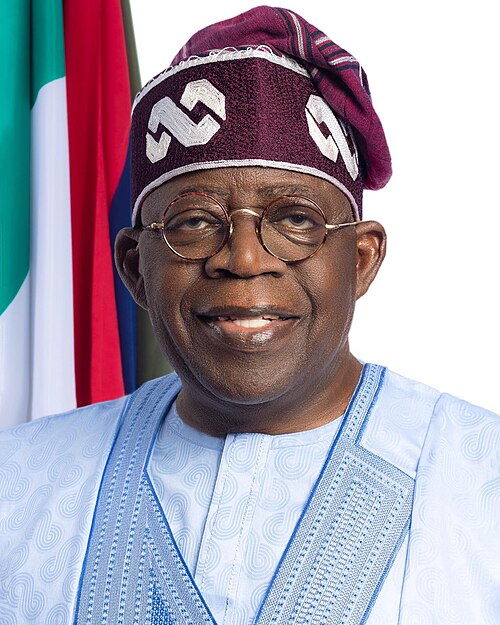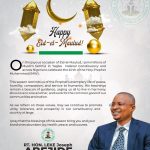Again, Tinubu Ignores Constitution, Refuses To Hand Over Power As He Heads On Vacation
By Bala Salihu Dawakin Kudu – Democracy Newsline Newspaper
September 5, 2025
In a move that has once again stirred national outrage and deepened concerns about democratic accountability, President Bola Ahmed Tinubu departed Abuja on Wednesday, September 4, 2025, for a 10-day “working vacation” in Europe—without officially transmitting power to Vice President Kashim Shettima, as constitutionally required.
This latest action, seen by many legal experts and political analysts as a blatant disregard for the 1999 Constitution (as amended), particularly Section 145(1), has revived the debate over growing executive impunity and the erosion of democratic norms under Tinubu’s presidency.
According to a statement released by Bayo Onanuga, Special Adviser to the President on Information and Strategy, the vacation will span across France and the United Kingdom. However, the statement failed to mention any formal notification to the leadership of the National Assembly—a critical step needed to activate a temporary transfer of presidential power.
> “President Bola Ahmed Tinubu will depart Abuja, September 4, to commence a working vacation in Europe, as part of his 2025 annual leave. The vacation will last 10 working days,” Onanuga stated.
“President Tinubu will spend the period between France and the UK and then return to the country.”
This is not the first time President Tinubu has ignored Section 145(1), which mandates that a sitting president must transmit a written declaration to the Senate President and Speaker of the House of Representatives whenever proceeding on vacation or is otherwise unable to discharge the functions of office. The Vice President is only empowered to act in the president’s absence upon such transmission.
Legal experts have decried the continued abuse of this constitutional requirement, warning that it sets a dangerous precedent for future administrations. Former Attorney General of the Federation, Mr. Yusuf Agabi, remarked in a recent interview:
> “The framers of the Constitution included Section 145 for a reason. It ensures continuity, accountability, and transparency in governance. Repeatedly ignoring this provision is not just an oversight—it is a constitutional breach.”
In October 2024, Tinubu had embarked on a three-week “working vacation” in France and the UK without transferring power to Shettima. That incident also drew fierce criticism, particularly from the opposition and civil society groups, many of whom described it as an affront to Nigeria’s democratic values.
Since assuming office in May 2023, President Tinubu has become one of Nigeria’s most travelled leaders, drawing criticism for what many see as excessive foreign engagements with minimal returns. Between May 2023 and September 2025, the President and Vice President collectively undertook 41 foreign trips to 26 countries, spending at least 180 days outside Nigeria.
Tinubu alone accounted for 29 foreign trips, clocking over 124 days abroad—a record that has been labelled “alarming” given the state of the nation’s economy and ongoing insecurity at home.
His latest vacation comes barely a week after returning from a 12-day diplomatic tour of Japan, Brazil, Dubai, and Los Angeles. During that trip, he participated in the Tokyo International Conference on African Development (TICAD9) in Yokohama and met with Brazilian President Luiz Inácio Lula da Silva. While several bilateral agreements were signed—covering aviation, science and technology, agriculture, and foreign affairs—critics argue that such trips have done little to relieve the suffering of ordinary Nigerians.
> “The people are hungry, insecurity is rising, fuel prices are at an all-time high, and the Naira is still unstable. Instead of addressing these problems, our President is globe-trotting,” said Kemi Adeyemi, a political commentator.
Adding to the controversy, both the Senate President and Speaker of the House remain silent on the matter, likely due to the fact that the National Assembly is currently on recess. This further complicates the constitutional crisis, as there appears to be no immediate oversight or challenge to the President’s refusal to delegate authority in his absence.
Civil society organisations are now calling for urgent reforms and enforcement mechanisms to hold presidents accountable when they flout constitutional obligations.
President Tinubu’s administration continues to face credibility issues. The 2023 general election, which brought him to power, was mired in allegations of manipulation and legal irregularities. A significant segment of the Nigerian populace, particularly young voters, continue to question the legitimacy of his mandate.
Many view Tinubu’s frequent travels and failure to delegate power not just as bad governance but as deliberate tactics to consolidate power and avoid transparency.
> “A president who respects his people, his office, and the Constitution would not act like this,” said Abdulmumin Haruna, a constitutional lawyer and democracy advocate.
“You can’t be absent for 10 days with no formal delegation and expect the nation to remain calm. That’s how dictatorships begin.”
With Nigerians increasingly disillusioned and trust in leadership at a historic low, this latest incident may further inflame tensions. Already, several youth coalitions and civic groups are mobilising for protests, demanding accountability and strict adherence to constitutional provisions.
While Tinubu may see his trips as necessary for international diplomacy or rest, critics argue that at a time when Nigeria is battling inflation, fuel scarcity, unemployment, and security threats, his continued absence—both physically and administratively—sends a message of detachment and arrogance.
The bigger question remains: How long will Nigeria’s democracy survive repeated constitutional violations from its highest office?










